Kindergarten
(Ages 5+)
At Sugar n Spice Daycare Center and Kindergarten, we believe that kindergarten is a time for children to learn and grow in a fun and supportive environment. Our kindergarten program is designed to help children develop the academic skills and social-emotional skills they need to succeed in first grade and beyond.
Understanding Kindergarteners
Kindergarteners are preparing for a big transition into first grade, so it's important to create a learning environment where they feel comfortable and supported. At Sugar n Spice Daycare Center and Kindergarten, our educators make learning fun and work on building each child's self-esteem. We know that kindergarten is a time of great growth and development, and we are committed to helping each child reach their full potential.
Crafting a Compelling Narrative: A Historical Perspective
To delve deeper into the world of kindergarten, let's explore its historical roots and the evolution of its philosophy.
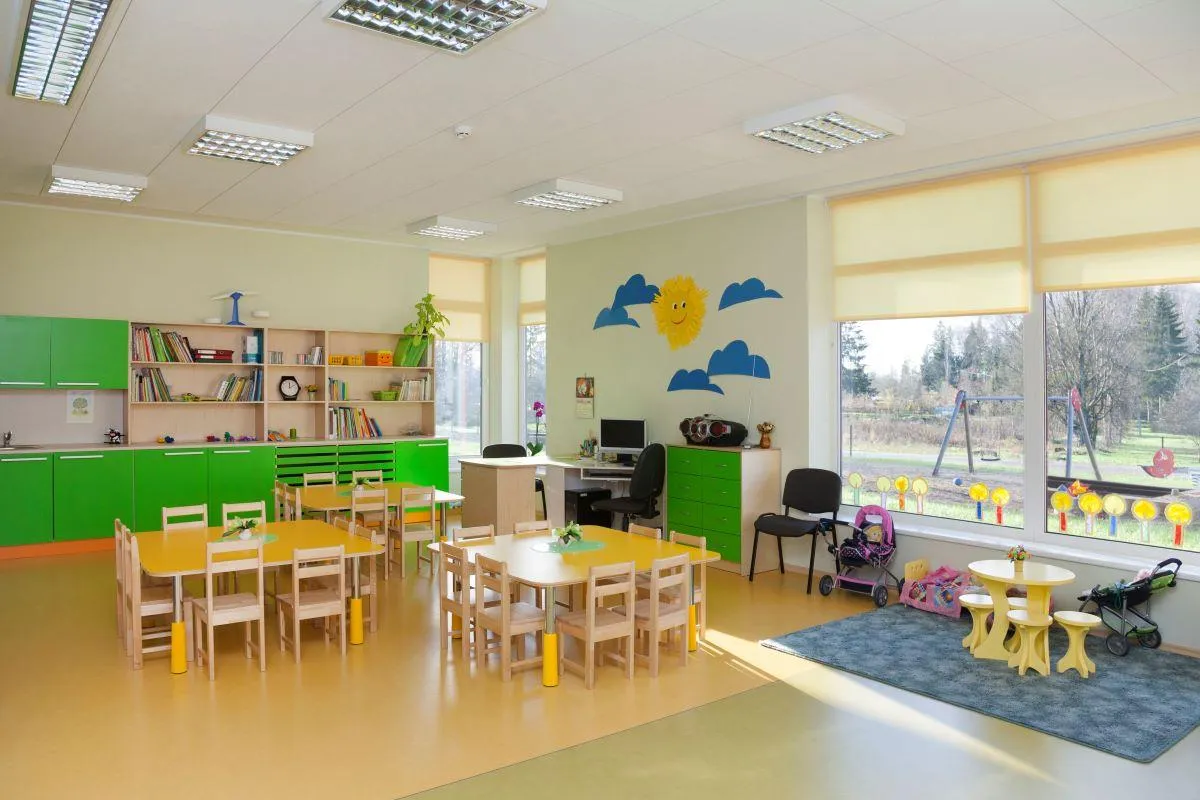
The Birth of Kindergarten
Friedrich Froebel:
The concept of kindergarten was first introduced by German educator Friedrich Froebel in the 19th century. He believed in the importance of play-based learning and the holistic development of children.
The Kindergarten Movement in the USA: The kindergarten movement gained momentum in the United States in the late 19th century. It was influenced by Froebel's ideas and adapted to suit the American educational context.
The Benefits of a Strong Kindergarten Foundation
A high-quality kindergarten program can lay the groundwork for a child's future academic success. Some of the key benefits include:
Social-Emotional Development: Kindergarten fosters social skills, empathy, and self-regulation.
Cognitive Development: Children learn problem-solving, critical thinking, and creativity.
Language and Literacy Skills: Exposure to books, stories, and promotes language development.
Early Math Skills: Hands-on activities and games help build a strong foundation in math.
Preparation for Future Learning: Kindergarten prepares children for the rigors of elementary school.
By investing in early childhood education, you are investing in your child's future. A strong foundation laid in the early years can have a lasting impact on their academic, social, and emotional development.
Engaging Children Together: Cooperative Learning
Cooperative learning is a powerful strategy that can enhance children's social, emotional, and cognitive development.
Here are some examples and tips:
Group Projects: Assign group projects that require collaboration and teamwork.
Partner Work: Pair children for activities like reading, writing, or problem-solving.
Shared Learning Experiences: Organize field trips, experiments, or art projects that involve the whole class.
Tips for Effective Cooperative Learning:
- Establish clear expectations and guidelines.
- Assign specific roles to each group member.
- Provide opportunities for peer feedback and support.
- Monitor group dynamics and intervene as needed
Nurturing Young Minds: The Power of Early Childhood Education
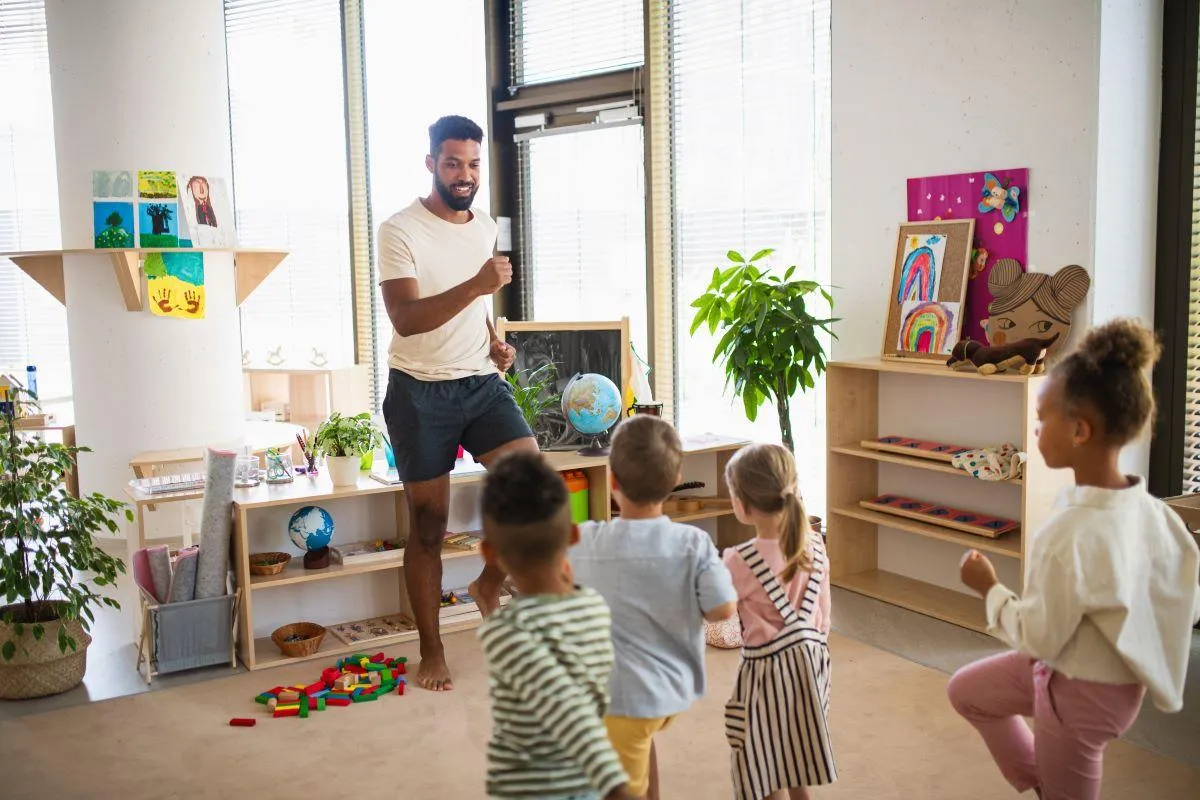
Early childhood education is a cornerstone for a child's holistic development. It sets the stage for future academic success, social-emotional well-being, and cognitive abilities.
Understanding the Core Concepts
To create captivating content on early childhood education, we must first delve into the key elements that shape young minds
1. Play-Based Learning: Unleashing Young Minds
How it Works: Play-based learning is a child-centered approach that leverages play as a vehicle for learning. Children are encouraged to explore, experiment, and discover through hands-on activities, games, and imaginative play.
Tools and Techniques:
- Learning Centers: Creating designated areas for specific activities, such as art, dramatic play, and building.
- Open-Ended Materials: Providing a variety of materials like puzzles and loose parts that can be used in multiple ways.
- Teacher-Child Interactions: Engaging in meaningful conversations and asking open-ended questions to stimulate thinking.
The Ideal Environment:
- Safe and Secure: A clutter-free and well-organized space where children feel safe to explore.
- Stimulating: An environment rich in sensory experiences, with a variety of textures, colors, and sounds.
- Flexible: A space that can be easily transformed to accommodate different types of play and learning activities.

2. Child Development: Nurturing the Whole Child
How it Works: Child development is a holistic process that involves physical, cognitive, social, and emotional growth. By understanding the stages of development educators can provide appropriate experiences and support.
Tools and Techniques:
- Developmental Assessments: Using standardized assessments to track children's progress and identify areas for support.
- Individualized Learning Plans: Creating tailored plans to meet the unique needs of each child.
- Positive Reinforcement: Encouraging positive behaviors and providing specific praise to build self-esteem.
The Ideal Environment:
- Responsive Caregiving: Providing consistent and attentive care to build secure attachments.
- Positive Guidance: Using positive discipline techniques to teach children appropriate behaviors.
- Respectful Communication: Communicating with children in a respectful and age-appropriate manner.
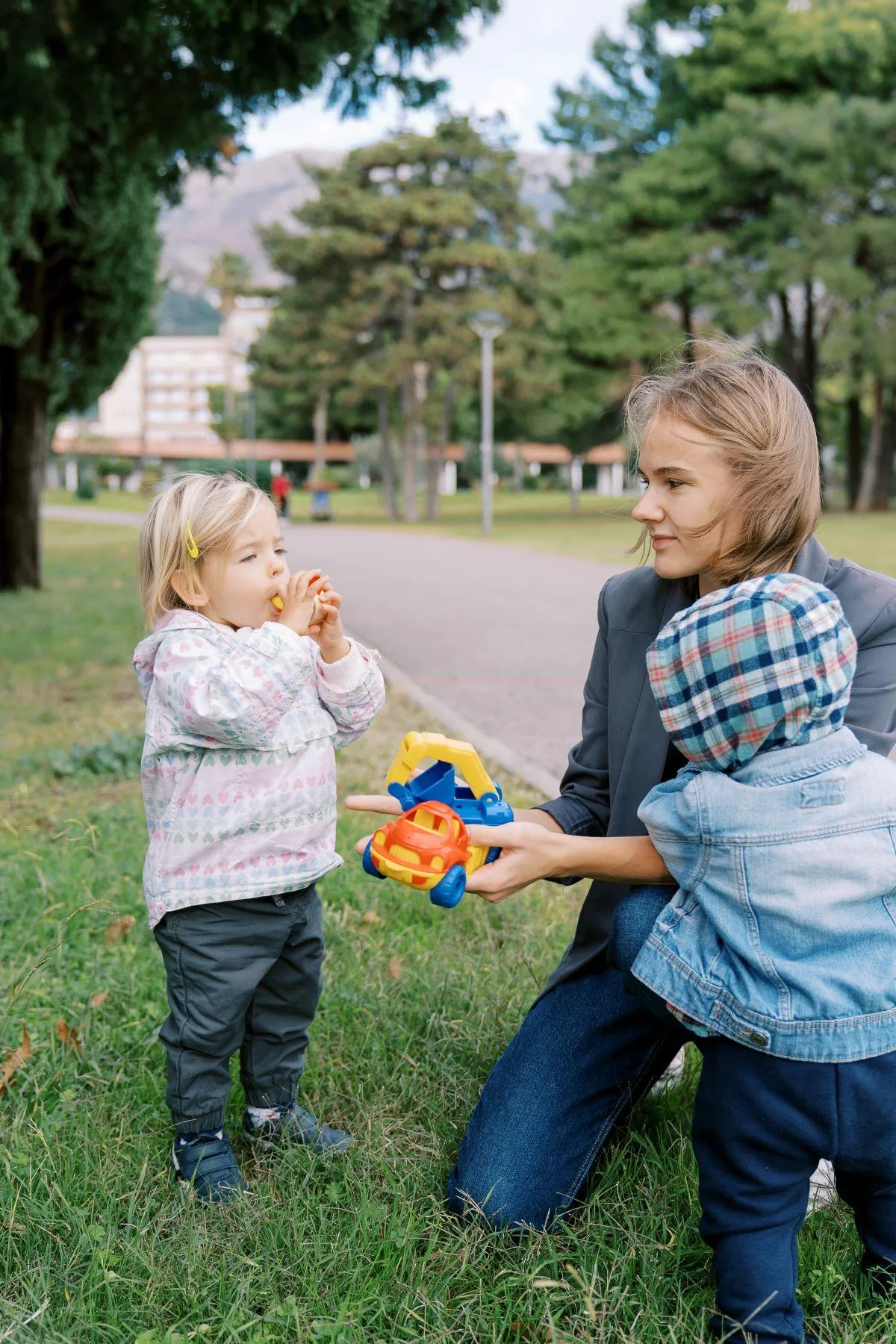
3. Child Care: A Foundation for Future Success
How it Works: Quality child care provides a safe, nurturing, and stimulating environment for young children. It offers opportunities for social interaction, cognitive development, and language acquisition.
Tools and Techniques:
- Qualified Staff: Hiring well-trained and experienced early childhood educators.
- Low Child-to-Staff Ratios: Ensuring adequate adult supervision and individualized attention.
- Curriculum-Based Programming: Implementing a comprehensive curriculum that aligns with early learning standards.
The Ideal Environment:
- Safe and Secure: A clean and well-maintained facility with safety measures in place.
- Nurturing Relationships: Building positive relationships with children and families.
- Family Partnerships: Encouraging parent involvement and collaboration.
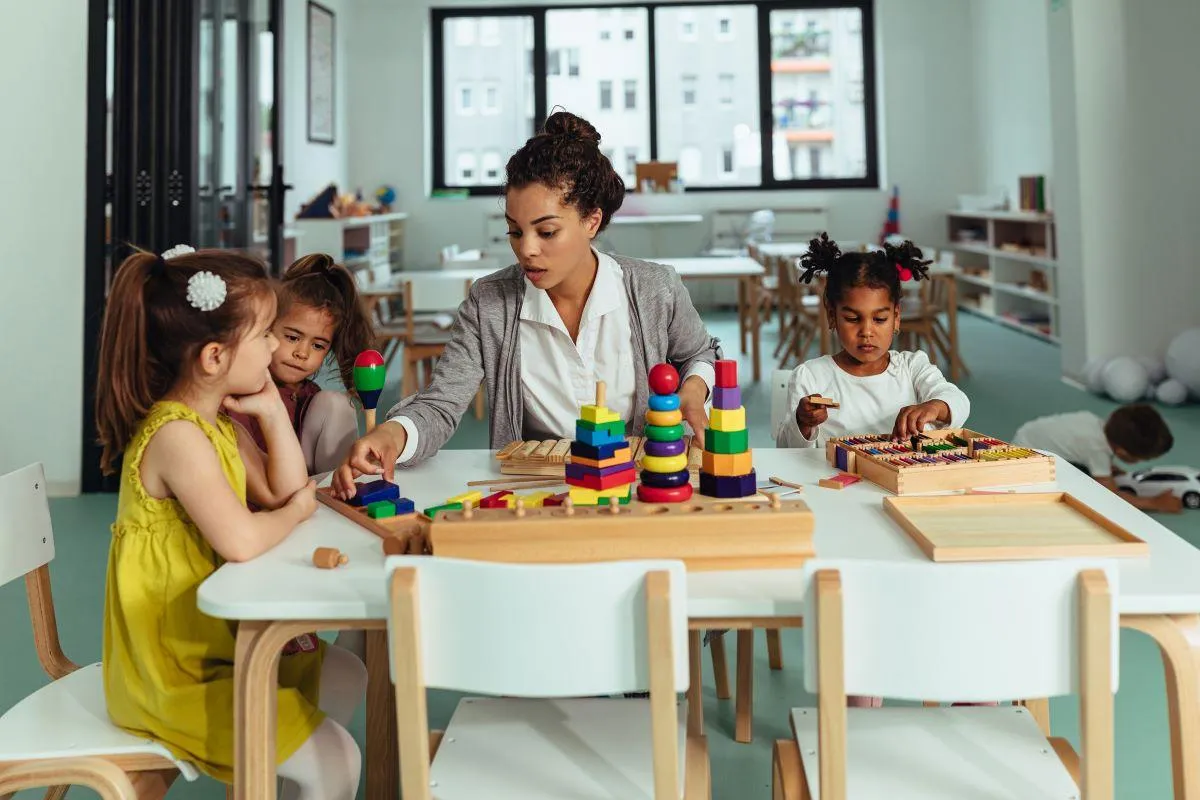

The Role of Parents in Early Childhood Education
Parents play a vital role in their child's early education. Here's how you can support your child's development:
Create a Stimulating Learning Environment: Provide toys, books, and activities that encourage exploration.
Read Aloud Regularly: This fosters language skills, imagination, and a love of reading.
Encourage Play: Allow unstructured play, both indoors and outdoors.
Talk, Talk, Talk: Engage in conversations to expand vocabulary and language skills.
Set Limits and Routines: Consistent routines provide security and predictability.
Positive Reinforcement: Praise and reward positive behavior to boost self-esteem.
Choose a Quality Early Childhood Program: Research programs and visit them to ensure they align with your child's needs and values.
After all, What is our program ?
Here are just a few of the things that make our kindergarten program unique:
An emergent curriculum that promotes a passion for learning. Our emergent curriculum is based on the belief that children learn best through hands-on experiences and exploration. We provide children with a variety of opportunities to learn and grow, including through music, the arts, and physical education.
Lower educator-to-child ratios for more individualized attention. We know that every child learns at their own pace, so we keep our educator-to-child ratios low in order to provide each child with the individualized attention they need. Our educators are experienced and dedicated to helping each child reach their full potential.
Nutritious meals and snacks prepared by our in-house caterer. We know that good nutrition is essential for children's learning and development. That's why we offer nutritious meals and snacks prepared by our in-house caterer, Kidco Kitchen. Our meals and snacks are ethnically diverse and meet all of the dietary needs of our students.
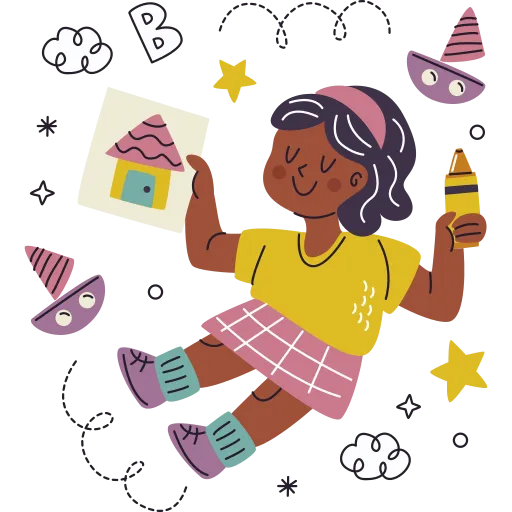
Ready to give your child the best start?
Enroll them in Sugar N Spice Daycare today! Our experienced educators provide a nurturing and stimulating environment that fosters your child’s growth and development. From engaging play-based learning activities to nutritious meals, we’re committed to providing the highest quality care.
Don’t miss out on this opportunity to secure your child’s spot. Contact us now to schedule a tour and learn more.
2026 © Sugar N Spice Day Care & Kindergarten, LLC, All rights reserve
Privacy Policy | Terms and Conditions
Powered by Kyrios Systems
